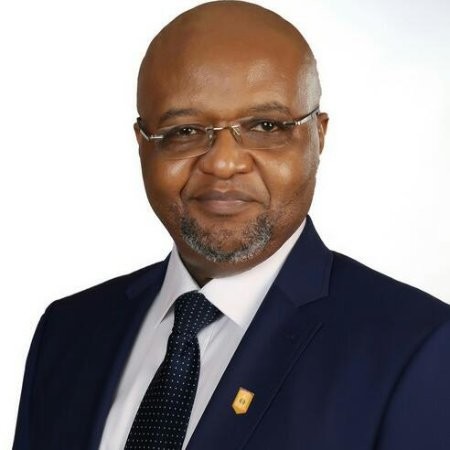Maureen Okpe
The Senior Fellow, Nnamdi Azikiwe University Business School, Prof. Okey Ikechukwu, has stated that the difficulties experienced in Nigeria is as a result of bad leadership and monetisation of political parties.
Ikechukwu noted that party politics and quest for public office have been channeled towards money making as all involved seek it as a means to gain financial favours while relegating the main essence of governance to the background.
In an exclusive interview on NTA’s “One on One” programme, the Executive Director of Development Specs Academy, brought attention to the critical issues of bad leadership and monetisation of political parties, which he considers major problems plaguing Nigeria.
During the interview, Prof. Ikechukwu pointed out that the quest for public office and engagement in party politics has increasingly become focused on financial gain rather than serving the people. He lamented that the essence of governance, which is service delivery, has taken a backseat in the minds of those in power.
The professor emphasised the need to distinguish between being political and being partisan. He stated that being political should encompass a commitment to the well-being of the community across party lines, encouraging constructive engagement for development regardless of party affiliations.
He said: “Looking at the reflexes of those who are governing, there is no service delivery, but there is expenditure. People need to make the distinction between politics and partisanship. When I tell people I am very political but not partisan, they wonder what I mean. I am interested in everything that concerns the way of life, of community across party lines, whether in your party or not because for taking that position politicians make rules that affect your life. So, if you are in the same party or not, if you have any positive contribution, make it available for him or her as long as he is in office.
“There is also nothing wrong with being partisan, but where the problem lies is when your party loses then you see nothing good in the government and vice versa. Consequently, people begin to suffer as a result of lack of constructive engagement that will make the man in power sit up, that makes room for development. In Nigeria they feel opposition is to insult the government, and this precedent was set up by the PDP.

Prof. Ikechukwu expressed concern over the lack of political education within parties, leading to superficial campaigns and rallies. He highlighted that party members are often mobilised with material incentives rather than genuine dedication to their party’s principles. This phenomenon has weakened the sense of political followership and national unity, with the focus shifting from citizenship to indigeneship.
He stressed: “Political parties lack political education and focus solely on elections, neglecting their members once elections are over. Periodic rallies and meetings drive membership, but the lack of genuine engagement results in crowds paid for their presence.
“There is also lack of unity, with emphasis on indigeneship over competency, permeating the system from services to education.”
“Again, in the democratic enterprise, vying for a position involves rules of engagement: register, vote, and accept the outcome. The judiciary serves as an important part of this process, ensuring accountability,” Ikechukwu added.
The former Head of Communications, Federal Ministry of Education, also drew attention to the issue of leadership crisis, indicating how some individuals accumulate wealth exponentially while in office, leading to a sense of disillusionment among the citizens.
He criticised the declining quality of Nigerian citizens who now prioritise their locality over the nation as a whole.
Speaking further he noted that the issue of leadership and elite crisis is distinct from party problems, adding, “somebody who has been in office in 1999, had a motorcycle he has some difficulty maintaining… But by 2003 he had built a N420 million mansion taking a massive expanse of the local government area. All because he was in office.
He noted: “The decline in responsible followership is evident in social disorientation, political apathy, distrust of government, and poor service across all levels, including infrastructure like roads and water security. This has led to a demobilisation of the people.
However, he said, there’s no escaping Nigeria.
“The journey from colonial rule to independence, the civil war, and now democracy remains the same. In the past, robust leaders like Zik, Awolowo, and Balewa brought optimism, but the current situation reflects abysmal poor leadership with governors relying on commissioners and PAs, delivering little. The quality of Nigerian citizens has suffered, with many focusing only on their localities.”
Regarding security, Prof. Ikechukwu acknowledged that the military plays a crucial role in maintaining law and order. However, he highlighted the importance of addressing the underlying issues of unemployment and lack of skill development, which contribute to a growing number of unemployable youths engaging in criminal activities.
Speaking further on the role of military in combating insecurity, he said:
“The military personnel are not aliens; they are our brothers and sisters. Even during a coup, the civil administration continues to run the Nigerian state, drafting decrees and navigating through processes.
“While I cannot blame the military institution as a whole, some personnel may exhibit excesses. Their concept of law and order differs from civilians, who follow orders with substantial compliance rather than absolute unconditional compliance.”
“Though they intervened, the military faced challenges due to a pre-existing mess. Since the 90s, their credibility has been diminishing. While criticising the military, we must also recognise their overstretched situation. The focus should also be on civilian administrators providing governance to reduce unemployment and the potential for impropriety and outright criminality.”
Prof. Ikechukwu further urged Nigerians not to lose hope and emphasised the need for a collective effort to address these challenges. He underscored the significance of citizen engagement and the role of the judiciary in upholding the democratic process.
The former Presidential aide also sheds light on the pressing issues Nigeria faces, offering valuable insights for policymakers and citizens alike to work towards a more transparent, accountable, and service-oriented governance system.
He however noted: “When a state has over 1 million unemployable youth, it goes beyond unemployment. These individuals lack skills and have learned nothing substantial, only relying on handouts. As their numbers grow, various sectors are affected, and the administrative apparatus seems ineffective, with 16 and 19 administrative bodies yielding no results.”

